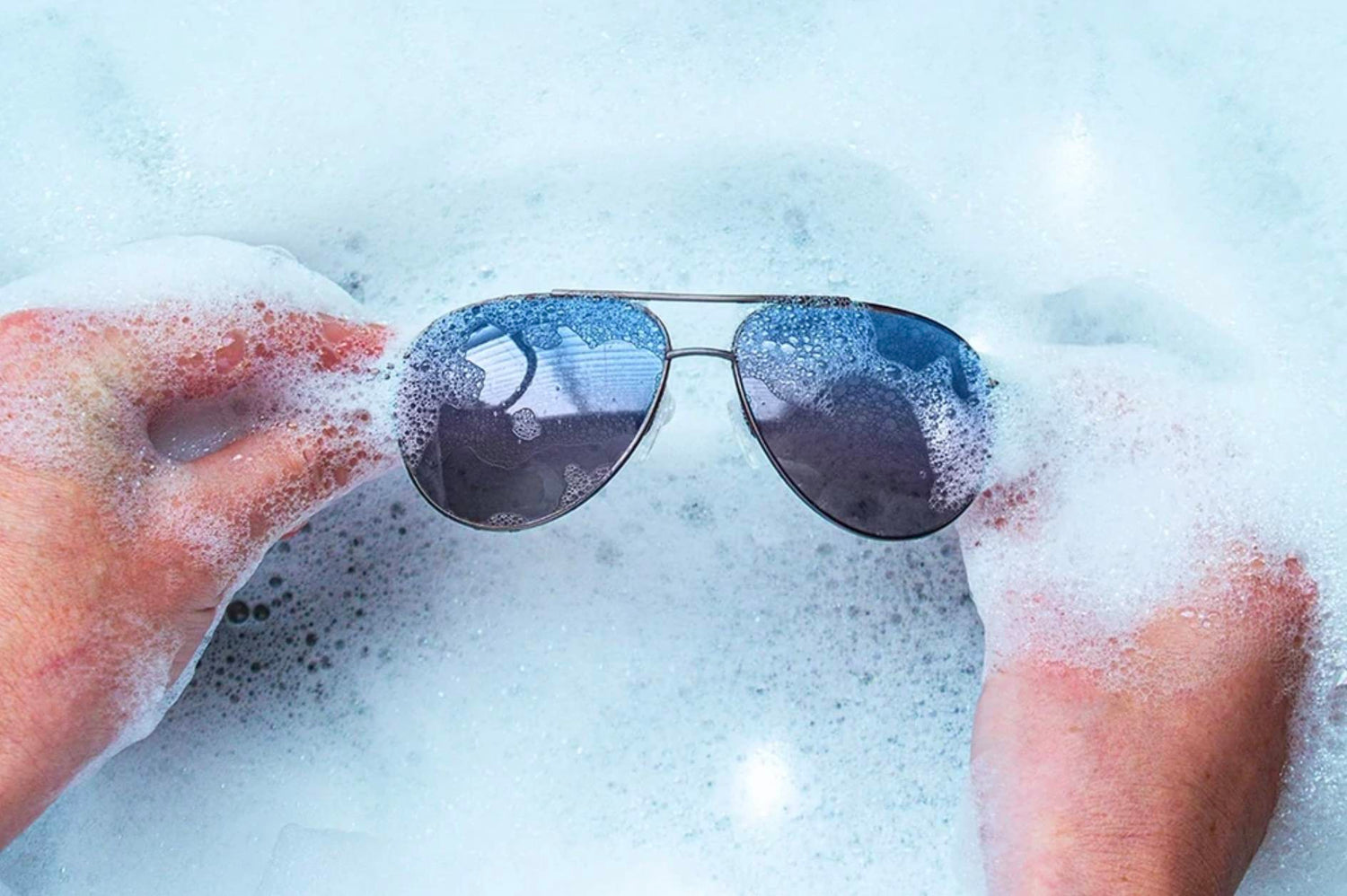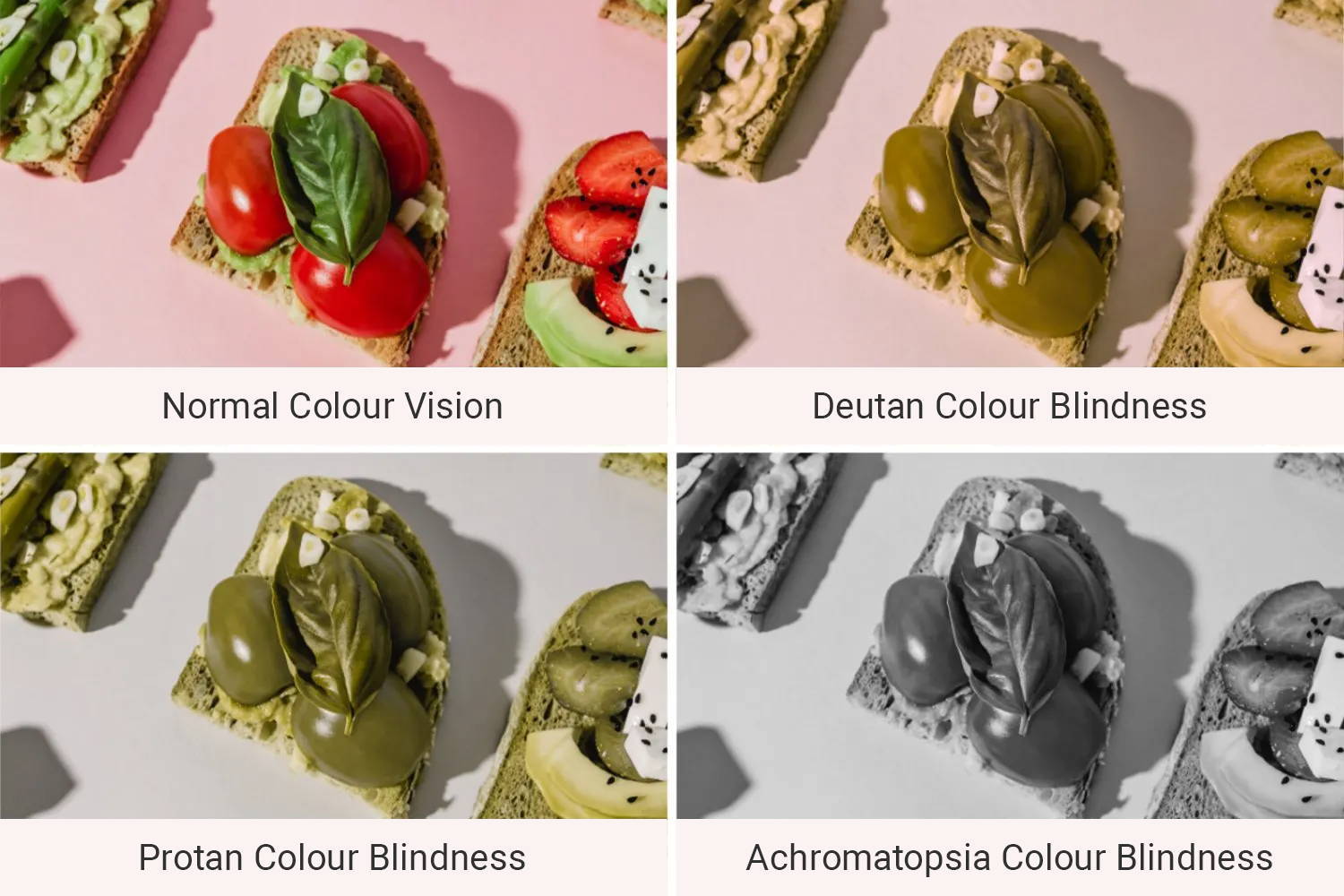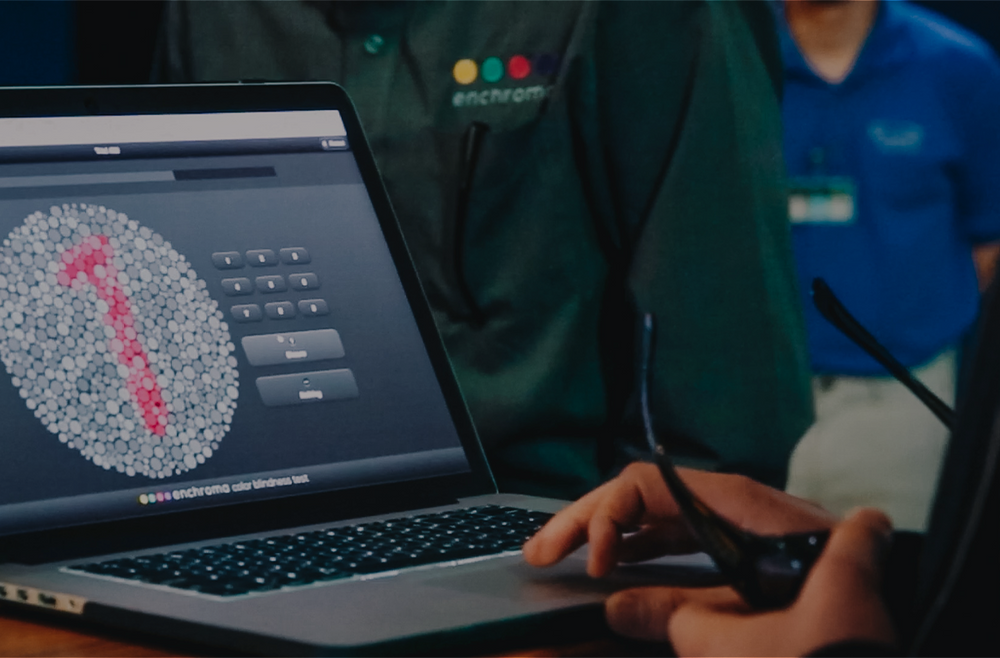The COVID-19 virus has had a profound effect on all our lives and how we address hygiene. Washing our hands thoroughly and often is crucial. Wearing a mask can help protect from inhaling the novel virus, especially when a person coughs or sneezes, and prevents touching the nose and mouth. It is also important to note that eyewear can be used as a protective measure during this time.
Health experts suggest that eyewear can provide a screen from airborne COVID-19 droplets, preventing them from entering through the eye. Wearing eyeglasses is recommended instead of contact lenses that invite more hand-to-eye contact. For contact lens wearers, consult your eye care professional.
“Health experts suggest that eyewear can provide a screen from airborne COVID-19 droplets, preventing them from entering through the eye.”
This is sound advice, however, eyewear can also be an inadvertent host and vehicle of transmission of the virus. Over 194 million Americans wear some type of vision correction and 218 million wear sunglasses, according to the Vision Council. Thus, it’s imperative for all of us to modify behaviors related to handling and interacting with our eyeglasses and sunglasses, and to properly disinfect them without damaging the lenses or frames.
According to WebMD, the Coronavirus has shown it can live for about two to 72 hours, depending on the surface. Materials typically found in glasses and sunglasses like plastics and metals are the types of surfaces on which COVID-19 can live, and the eyes are an entry point for infection. Coronavirus can travel by touching the frames or lenses of glasses Touching frames and lenses to make routine adjustments, and then unconsciously touching the mouth, nose or eyes, without first washing our hands, are extremely common, almost involuntary habits.
In addition, some people remove their glasses and put the tips of their frames in their mouth or rub their eyes. All of this behavior can provide a path from contaminated frames or lenses to our hands and then to our eyes, nose or mouth, or from compromised hands to our frames or lenses, where the virus could live for days.
What should you do?
Six Tips to Break Risky Habits and Improve Eyewear Cleanliness
-
WEAR GLASSES PROTECTIVELY
Wearing your glasses can help protect your eyes from stray droplets of Coronavirus. -
WASH HANDS
Treat the risk of infection from glasses the same as the risk from your hands; wash both frequently. -
WASH EYEWEAR WITH SOAP
If you go out in public, get in the habit of washing your hands and glasses at the same time once you return home. A soapy wash can also leave an invisible residue that helps to reduce lens fogging when also wearing your mask. -
MINIMIZE TOUCHING FACE AND GLASSES
Train yourself to become aware of how reflexively and frequently you touch and readjust your glasses; don’t touch your glasses unless you absolutely must. -
AVOID RUBBING YOUR EYES
Avoid rubbing and touching your eyes. -
WEAR GLASSES NOT CONTACTS
The American Academy of Ophthalmology recommends you switch from wearing contact lenses to glasses because contact lens wearers touch their eyes more often, which increases the risk of infection.
How to Safely Wash and Disinfect Eyewear
SOAK EYEWEAR: Use dish soap and warm water to soak eyewear for 20 seconds a few times a day to ensure the nooks, crannies and hinges get cleaned. Sing ‘happy birthday’ two times then remove, rinse with water and gently blot dry with a soft towel.
NO PAPER TOWELS: To dry, do not use paper towels, sponges or rough paper products because they can scratch lenses. Use a soft cloth and avoid air drying glasses since it can leave a watery residue.
NO ALCOHOL OR BLEACH: The level of alcohol found in common sanitizers can damage glasses, so use mild unscented dish soap that does not contain lanolin (most do not). Don’t use hand soap because lanolin is a typical ingredient and most include oils that can remain on and smear lenses during cleaning.
OTHER CLEANING SOLUTIONS: While dish soap is optimal, moistened lens wipes and sprays made specifically for glasses are also effective for removing the virus and safe to use. However, ensure they do not contain more than 60% alcohol and do not use standard household disinfectant wipes as both can damage frames and lens coatings. Many computer screen cleaning solutions can be used too. Wipe all parts of your glasses including hinges, screws, lenses and frames.
As the Coronavirus forces changes in our everyday routines and daily life, adopt the practices outlined above as common behaviors. Doing so will better protect you and help to keep you, and the ones you love, healthy and safe. Call your local eyecare professional if you have questions about COVID-19 and your eyes.
About the Author:
Mark Mattison-Shupnick is Master Optician and Vice President of Business Development for EnChroma, a lens technology and eyewear company for colour blindness.
During the H1N1, Mark presented a webinar on the virus for eyecare professionals for Jobson Medical Information, for which he served for 13 years as a Director of Education and Training. He has 50 years of experience in the eyecare field.
About EnChroma
EnChroma invented the #1 patented eyewear and sunglasses for colour blindness sold online and via Authorised Retailers worldwide. Colour blindness is a condition that affects over 350 million people worldwide. Learn more.



